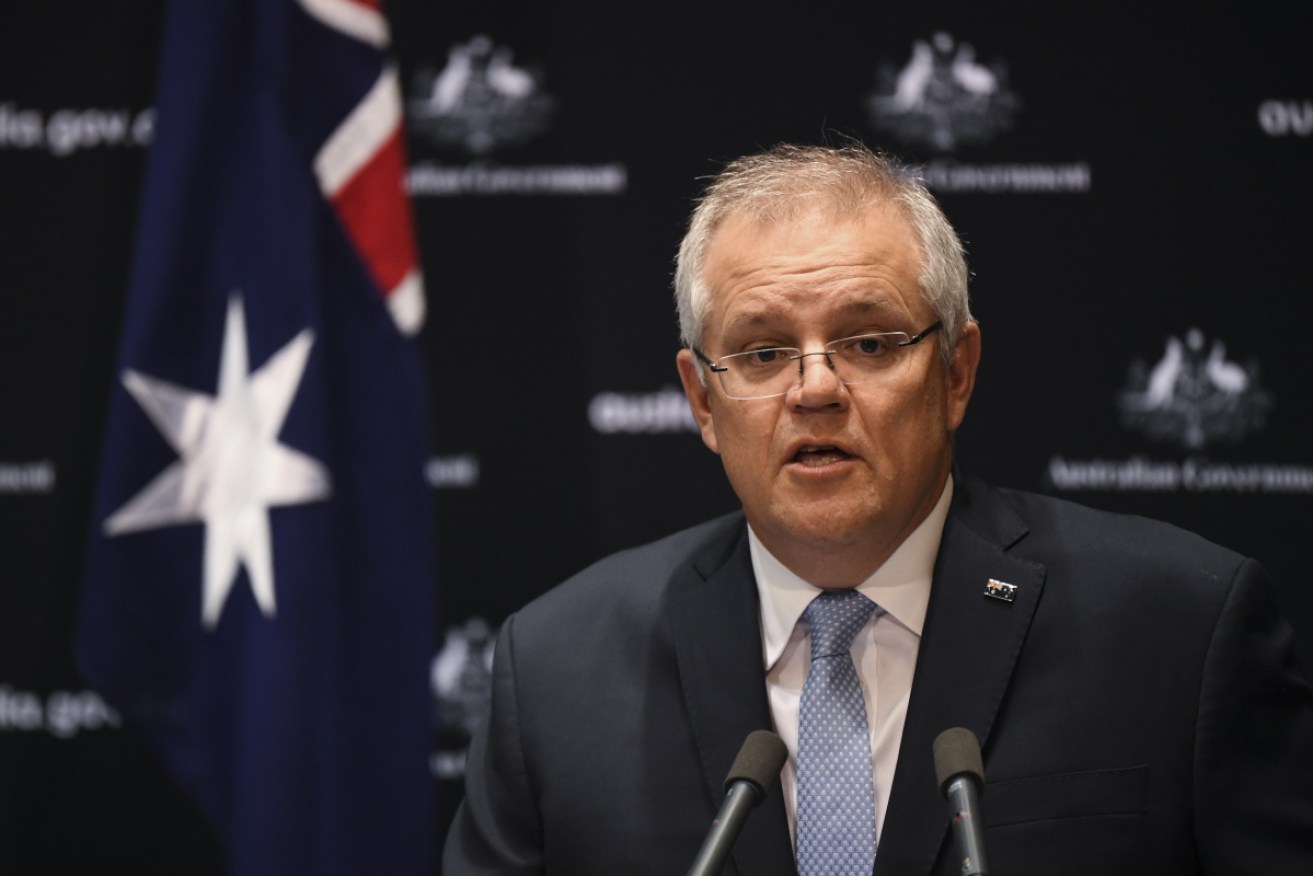Crowds are back as PM announces major changes for virus measures


The Prime Minister is weighing up what to do with JobSeeker payments Photo: AAP
The 100-person limit on gatherings will be abolished across Australia from July, in a significant easing of coronavirus restrictions.
Prime Minister Scott Morrison said a “four-square-metre rule” would replace the cap at gatherings such as sporting and cultural events, funerals and weddings and in cafes.
The move means sports stadiums with up to 40,000 seats will be allowed to reopen to ticketed crowds of up to 10,000. Social distancing measures will be required around bars and food outlets.
“People will be able to watch the games, not as cardboard cutouts, but in person, should they be fortunate enough to get one of those seats,” Mr Morrison said.
“This is not something that’s happening straightaway. This is something that would be happening as part of step three, where states and territories choose to move to that, and it will require a bit more work.”

Cutouts will make way for real (socially-distanced) fans at some stadiums from July.
His announcement came after Friday’s National Cabinet meeting, at which political and health leaders also discussed border closures. State premiers have been firm in resisting federal government pressure to open their borders to interstate travellers, even as active COVID-19 cases have fallen.
Queensland, which has borne much of that pressure, has said it will open its border in July. Mr Morrison said that was welcome.
“I anticipate states will be working through those decisions in the next few weeks, and they’ll come to their own conclusions,” he said.
“But what is important, whatever date that is, is that it is nominated as soon as possible because that will enable the travel and tourism and hospitality industries to plan for that time,” he said.
- See Queensland’s border moves roadmap here
Mr Morrison said the return of international students to Australia had also been discussed at Friday’s meeting. A plan for their return “in a controlled setting” in July was being worked on, he said – but he had a warning for state leaders.
“If someone can’t come to your state from Sydney, then someone can’t come to your state from Singapore,” he said.
“If you want to open up borders for international students, then you have to open up borders for Australians.”
Within an hour of Mr Morrison’s announcement, South Australian Premier Steven Marshall said his state’s border controls would end on July 20. Mr Marshall, who also said SA would move to stage three of virus measures from June 29, had flagged the border move on Thursday.
While Friday’s announcement was good news for smaller venues, those with a capacity of more than 40,000 will have to wait a bit longer.
Crowds of more than 10,000 had other issues, including managing entering and leaving a venue and capacity on public transport, Mr Morrison said.
“I know that’s work that both the medical expert panel and those states and territories that have those larger venues are keen to work on, but that will require a lot of work,” he said.
Also on Friday, chief medical officer Professor Brendan Murphy said Australia had reported only 38 new coronavirus cases in the past week.
More than half of those were in returned international travellers in mandatory quarantine. One of those was a two-year-old boy in Brisbane, who was Queensland’s only new case on Friday.
Elsewhere, NSW had three cases, Victoria had four. WA had one, also in a returned traveller, while SA had none.
Tasmania declared on Friday it had no active remaining coronavirus cases. Premier Gutwein has flagged eased restrictions next week – and reopening the border in late July.
Professor Murphy said Australia was “in a good place” but could still expect more cases brought in from overseas.
“Our strategy across the nation has been one of suppression,” he said.
“It is fantastic that we have effectively achieved elimination at this time, in many parts of the country – but that’s not our goal, because we know we will have return travellers coming.
“We know our quarantine arrangements are not going to be 100 per cent perfectly safe all the time.”
Australia’s success had allowed the National Cabinet to be more confident about relaxing virus restrictions, he said.








